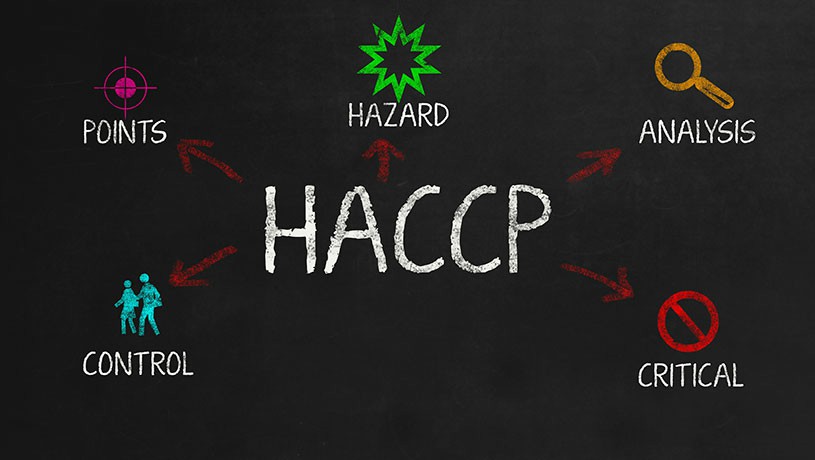Unlocking Food Safety: The Essential Need for HACCP Training in Dublin, Cork, Galway, and Beyond
The food industry in Ireland faces stringent regulations aimed at safeguarding public health. One of the most vital components of food safety management is the Hazard Analysis and Critical Control Points (HACCP) system. Understanding why HACCP training is not merely recommended but a legal requirement for food businesses is crucial for every food business owner, restaurant manager, catering professional, and food safety officer in Dublin, Cork, Galway, Limerick, Waterford, and Belfast.
What is HACCP?
HACCP stands for Hazard Analysis and Critical Control Points. This preventive management system helps identify and control potential hazards in food production, processing, and preparation. The goal is to reduce the risk of contamination and ensure that food products are safe for consumption. HACCP is comprised of seven core principles:
- Conduct a Hazard Analysis: Identify potential hazards that could affect food safety.
- Determine Critical Control Points (CCPs): Establish points in the process where hazards can be controlled or eliminated.
- Establish Critical Limits: Set maximum or minimum limits for each CCP.
- Establish Monitoring Procedures: Implement systems to monitor control measures.
- Establish Corrective Actions: Determine actions to take when monitoring indicates a deviation from an established limit.
- Establish Verification Procedures: Conduct activities to confirm that the HACCP system is working effectively.
- Establish Record-Keeping and Documentation: Maintain records to demonstrate compliance and provide proof of HACCP effectiveness.
The Legal Requirement for HACCP Training in Ireland
In Ireland, businesses that handle food are mandated to follow the Food Safety Authority of Ireland (FSAI) guidelines, which require the implementation of a HACCP-based food safety management system. This ensure compliance with both national and European Union food safety regulations. The necessity for HACCP training is not just about legal adherence; it reflects a commitment to public health and safety.
HACCP Compliance in Location-Specific Contexts
Whether operating in bustling Dublin, scenic Galway, or any other city like Cork, Limerick, Waterford, or Belfast, understanding local dynamics can enhance compliance efforts:
- Dublin: With numerous eating establishments, the risk of foodborne illnesses is high, necessitating thorough HACCP protocols.
- Cork: As a food production hub, businesses must ensure rigorous HACCP training to meet health standards.
- Galway: The tourism sector relies heavily on food safety, making HACCP training imperative for restaurants and hotels.
- Limerick: Catering services must establish strong HACCP practices to ensure compliance and customer confidence.
- Waterford: Local food manufacturers have legal obligations to implement HACCP to protect public health.
- Belfast: Restaurants and food retailers must adhere to strict HACCP guidelines to avoid penalties and protect their reputation.
Benefits of HACCP Certification for Food Businesses
Beyond legal compliance, HACCP Certification can provide numerous benefits:
- Prevention of Food Contamination: By implementing HACCP principles, businesses can significantly reduce the risk of foodborne illnesses.
- Enhanced Customer Trust: Certification demonstrates a business’s commitment to food safety, boosting customer confidence and loyalty.
- Improved Operational Efficiency: A structured HACCP plan minimizes waste and enhances overall operational efficiency.
- Market Competitiveness: With HACCP Certification, businesses can stand out in a crowded marketplace, appealing to health-conscious consumers.
Steps to Achieve HACCP Certification
For food businesses in Ireland, achieving HACCP certification involves several key steps:
- Enroll in a HACCP Training Course: Consider courses offered in Dublin, Cork, Galway, Limerick, Waterford, and Belfast to gain foundational knowledge.
- Conduct a Hazard Analysis: Identify potential hazards and determine CCPs specific to your business operations.
- Develop a HACCP Plan: Document your plan, including critical limits and monitoring procedures.
- Implement Training for Staff: Ensure that all staff understands their roles in maintaining compliance.
- Conduct Regular Reviews: Regularly review and update your HACCP plan to adapt to any changes in your processes or regulations.
Online vs. In-Person HACCP Training
Another consideration is whether to pursue online HACCP training or attend in-person courses. Both options offer their unique advantages:
- Online HACCP Training: Flexible schedules that enable workers to learn at their own pace.
- In-Person HACCP Training: Opportunities for hands-on experiences and immediate feedback from trainers.
Conclusion
HACCP training is more than just a legal requirement; it is a fundamental aspect of running a successful food business in Ireland. It mitigates risks, enhances quality assurance, and establishes a strong foundation for consumer trust. Start your journey toward HACCP compliance today. For more information on HACCP training courses available across Dublin, Cork, Galway, Limerick, Waterford, and Belfast, or to enroll, visit HACCP Training Course or contact us at [email protected].



 349,500 Offered Certificates
349,500 Offered Certificates
 24/7 Online Training
24/7 Online Training
 Money Back Guarantee
Money Back Guarantee
 Fully Accredited Courses
Fully Accredited Courses
